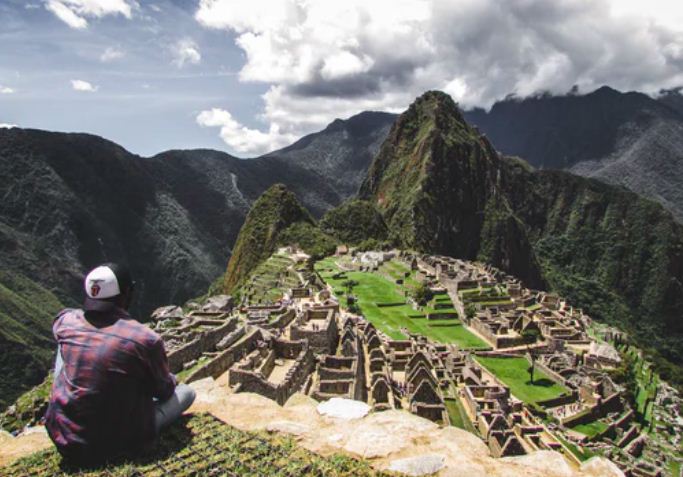East of the Mississippi River and continue to the Atlantic Ocean, the country changed in character.
Rather than the sandy deserts of the West or the windy grasslands of the Middle Plains, the land now was broken up into rolling river valleys and everywhere covered with thick deep green forests.
Here too dwelt vigorous active tribesmen. All of the forest people were hunters since the wildlife was plentiful among the trees.
They lived in small lodges built from saplings. Nearby in little clearings, they raised maize, squash, and tobacco.
Here the women were held in great honor by the forest people and worked with the men in harmony. Confidence and trust governed all, and home life was generally peaceful, sacred, and happy.
Much of the life of the forest dwellers were spent in fighting other tribes who tried to take their hunting grounds and their food stores.
Under the leadership of a brave man named Hiawatha, five of the tribes living in the vicinity of what is now New York State, united in a League of Nations to keep peace among themselves.
Hiawatha also taught his people about agriculture, and legend relates that he arose to heaven in a white birch bark canoe.
All over the vast continent of North America people dwelt in tribal groups with ideas and customs very much the same.
The forest people, the plains people, the people of the Southwest, as well as those of the Pacific Coast and those of the great Northwest, who built totem-poles, kept records on walrus tusks and drove their painted boats to the edge of the Great Eternal Snow.
The only difference was due to the nature of the country where they lived, and the manner in which they found food.
Some were more peaceful than others and some developed the arts of weaving, painting, carving, and some the knack of constructing buildings to great heights, but all were Stone Age people with no knowledge of metal or of the wheel.
Nevertheless, the people of Ancient America had progressed far beyond the knowledge of their primitive ancestors who ventured from Asia across the cold waters of the Bering Sea so many thousands of years earlier.
They discovered agriculture and developed many new plants. They learned basket weaving, pottery making, and how to weave fine cloths for clothing and decoration.
They developed a religion that was wholesome and satisfying, conceiving that behind all gods was a Great Spirit or Higher Power, expressed through all things in nature.
The people of Ancient America were happy and contented with only the simplest things.
They had no lands to call their own, they didn’t ‘own‘ property, but the hunting grounds and fields were considered owned by the tribe living there, and in their communities, all worked toward the good of the total tribe.
Other people of the world had little to offer the inhabitants of America.
Their mechanical inventions and sophisticated knowledge had little value to these first dwellers of Ancient America, and in fact, would one day prove to be their undoing, their enemy, and their destroyer.
As history tells, there were wars among the tribes that were brutal and destructive, there were scoundrels and thieves and murderers much like today.
But it wasn’t until ‘civilization‘ encroached upon them in the form of strangers from across the Atlantic Ocean that they knew true devastation.
These people brought with them not only the new inventions from across the seas, but they also brought new germs and plagues of which the natives had no immunity.
Vast numbers of them became sick and died of the fevers contracted from the new settlers.
While at first, these new strangers came in peace, there would soon be fighting and brutal wars between them as the newcomers wanted the lands for themselves.
Civilization was not to be easy on the People of Ancient America!

